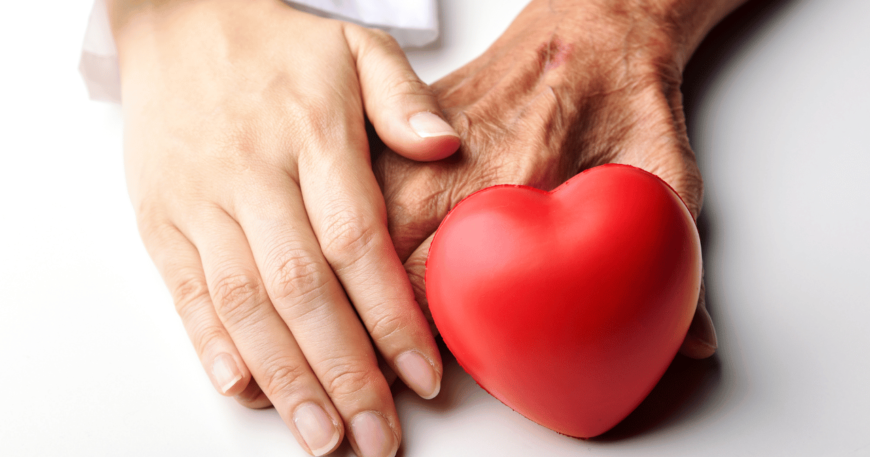In day-to-day 21st-century life, suffering surrounds us. Whether it’s a burned-out nurse colleague, the homeless person sleeping on the subway grate, a grieving mother standing over the body of her lifeless child, or the stranger crying in the supermarket produce aisle, there’s no shortage of moments in which we see the gravity of the lives of other human beings unfold before our eyes. So, what do we do in the face of it all?
Suffering Isn’t Optional
As nurses, we’re privy to so much:
The grieving mother
The patient with a new cancer diagnosis
The diabetic facing an amputation
The general suffering of morbidity and mortality
Our nurse training exposes us to pathophysiology, microbiology, and other sciences and opens a window into the intimate worlds of other people. Textbook learning is one thing — real life is another thing entirely.
Our patient-facing work is a microcosm of the macrocosm. For every patient with a new life-altering diagnosis sitting in our exam room, ED, or oncology unit, tens or hundreds of thousands of people will likely receive similar news on the same day.
A nurse on the other side of the world could be holding the hand of your patient’s doppelgänger, saying similarly comforting words while you express yours. It all points to the same thing: suffering isn’t optional. It’s universal.
The Spirit of Giving
As the holiday season begins, many people think about family and friends. There can also be a naturally heightened awareness of the suffering around us. Charitable organizations and non-profits send out their end-of-year pleas, understanding that this time of year can often open people’s hearts and their wallets.
Giving increases around the holidays, and while some might attribute this to the last chance to make deductible donations before the end of the tax year or a sense of overwhelming guilt as we spend thousands of dollars on frivolous gifts. In contrast, others go hungry, and most would likely agree that a sense of charity and generosity is generally in the air as the year draws to a close.
But no matter how many checks we write and gifts we give, nothing feels better than human touch, whether literal or figurative.
The Nurse’s Heart
The nurse’s heart is wondrous if not bruised, battered, damaged, and calloused by bullying and incivility, stress, burnout, moral injury, or compassion fatigue. That exact giving nature that led to the desire to serve others by becoming a nurse can also lead to other forms of service.
With over four million nurses in the United States and many more millions in the world beyond, nurses are often at the scene when they’re needed the most. Someone has a seizure in a restaurant, and a nurse sitting across the room snaps into action and knows what to do. An older woman tumbles at the mall and breaks her arm, and a nurse is there to tend to her. There’s a car accident on the freeway, and who pulls over to help? A nurse on her way home from work.
Speaking of work, nurses are the largest segment of the healthcare workforce. Thus, their presence is felt in almost everything that happens. Nurses show up, and our hearts and hands are always ready.
A Reservoir for Tears
Nurses’ hands are skilled: we start IVs, dress wounds, assist in surgery, insert catheters, mix and administer chemotherapy, and perform CPR. Our fingerprints are all over the delivery of patient care, and we also have a hand in non-clinical roles that serve equally important purposes, from writing code to balancing institutional budgets.
Yes, the gravity of human life unfolds all around us, and we nurses know what to do. We’re generally take-action kinds of people, and we reach out our hands to others in situations when the rest of humanity might shy away. Blood, guts, feces, urine, vomit, and afterbirth? We’re right there. Maggot-infested wounds and gangrenous battlefield stumps? Sign us up. The suffering of children, the elderly, and the disabled? We’re ready to pitch in. Our hands have seen it all, and we’re ready for more.
Nurses reach out their hands over and over. Our presence is ubiquitous and universal. We show up. We give. We give again. And we provide some more. No matter how deep the wound, acute the suffering, or how fresh the pain and grief are, a nurse’s hands are ready to be a reservoir for others’ tears.
We’re not heroes or superhumans, and we’re certainly not angels in scrubs. We’re human beings and fallible and flawed like all the rest. But we’re also not afraid to show up. And our hands are there when others’ hands may falter. That’s what makes us nurses, and always will.
The post Nurses, Reach Out Your Hands to Help End Suffering first appeared on Daily Nurse.




